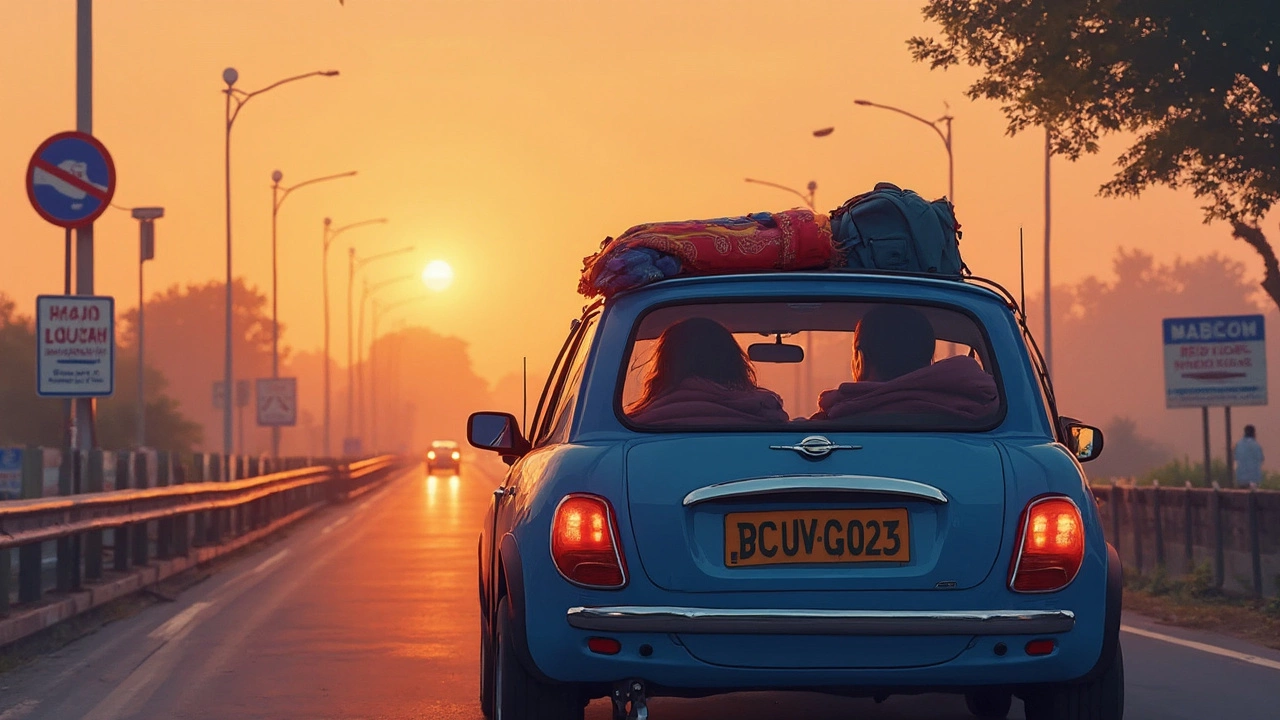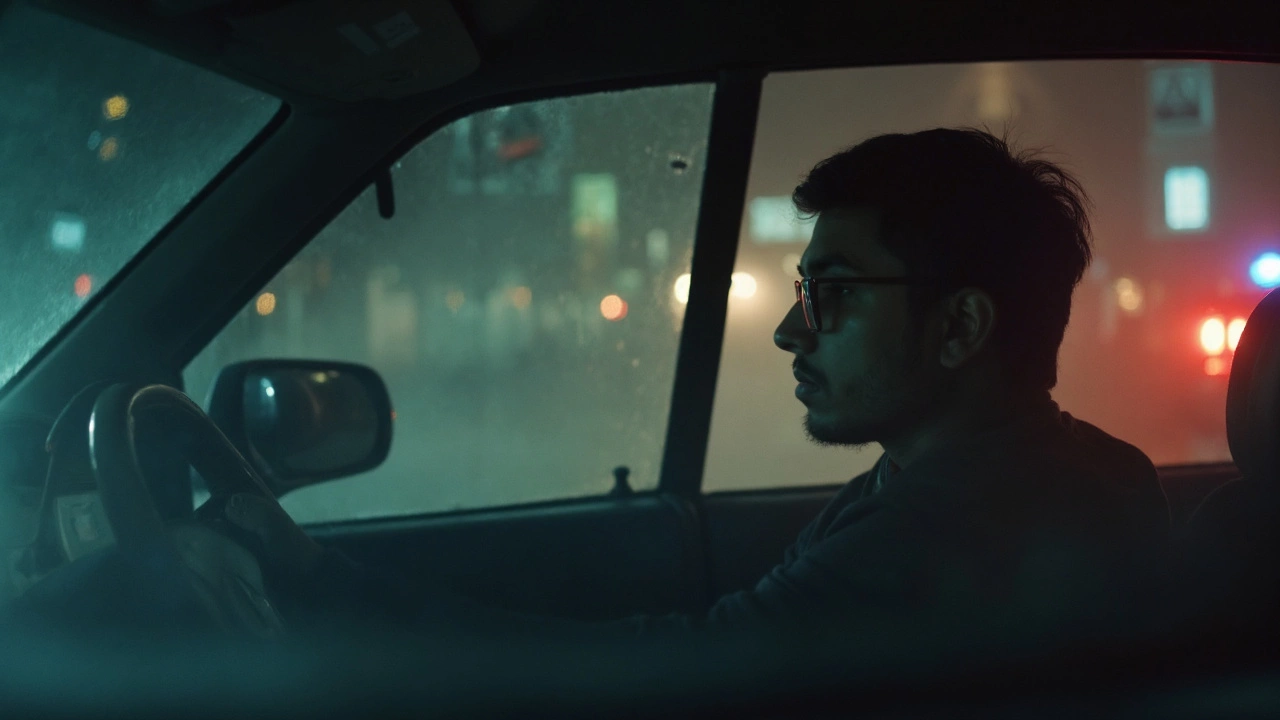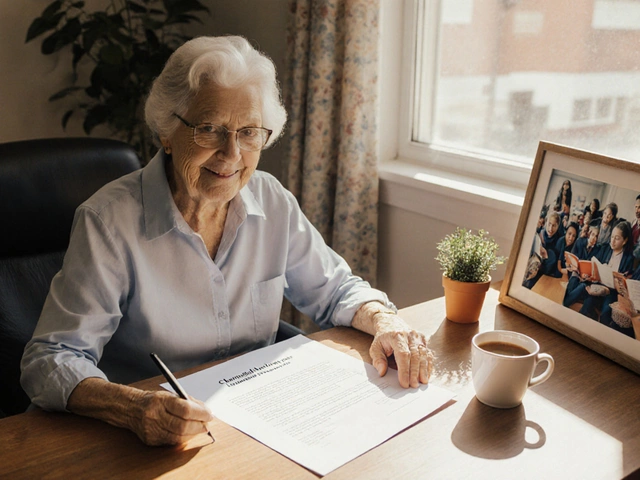Ever thought your car could double as a bedroom? You’re not the only one. People—whether they’ve lost housing or just need a nap on the road—sometimes have no choice. But believe it or not, snoozing in the driver’s seat could land you a hefty fine or even a court date in certain states.
Why does it matter where you lay your head inside your vehicle? Local and state laws across the U.S. set a confusing mix of rules, often targeting folks without safe housing. In some states, police take ‘no overnight parking’ seriously, pushing people into hiding or back onto the street. And the laws aren’t just stuck in one part of the country—they change from one city to the next, really.
If you’re living out of your car, in between places to stay, or just can’t afford a hotel, it pays to know the rules. A sleepy mistake could empty your wallet real fast. Let’s figure out where you can—and especially where you can’t—legally catch some shut-eye in your car tonight.
- Why Sleeping in Your Car Is a Legal Gray Area
- States With the Toughest Sleeping-in-Car Laws
- City Bans That Catch Travelers Off Guard
- Smart Tips for Sleeping Legal (Or At Least Safe)
Why Sleeping in Your Car Is a Legal Gray Area
So, is it really illegal to sleep in your car? Here’s where things get confusing. Most states don’t have one blanket statewide law against sleeping in your vehicle. Instead, it’s usually up to cities or counties. This patchwork makes it tricky—something totally fine in one place might get you a ticket just five miles down the road.
A lot of the rules come from concerns about public safety and visibility. Local leaders worry that parked cars with people sleeping draw complaints or bring up worries about crime, even if that’s not fair. So, they write rules about where cars can park overnight. Sometimes it’s about blocking overnight parking at rest areas, parks, or city streets—other times it’s written directly as a ban on “vehicle habitation.”
Here’s what that means in practice:
- Some states limit how long you can park at highway rest stops (think two, four, or eight hours), but don’t actually mention sleeping. You snooze longer, and you might get a knock on your window.
- Certain cities—especially in places with expensive housing—have created "vehicle dwelling" bans. They’ll cite you if it looks like you’re living out of your car, giving out tickets or even towing your ride.
- Other places have strict rules about commercial lots (like Walmart or 24-hour gyms), so don’t assume it’s always safe to catch some sleep in a big store parking lot. Plenty of Walmart locations banned overnight sleeping back in 2022.
Why is this a big issue? Look at the numbers: According to the U.S. Department of Housing and Urban Development, in 2023, over 119,000 people were counted as “unsheltered,” including many who relied on their vehicles to stay warm and dry. But even folks just trying to get through a long drive have gotten tickets or worse for dozing off in their own cars.
If you search for car camping legal or ask about "sleep in car laws," you’ll see dozens of very different answers. Local officers have wide leeway, and it depends a lot on how a place chooses to enforce the rules. A town might quietly ignore people napping near the highway, but another town down the road could be on high alert, especially if residents have complained about "people sleeping in their cars."
Bottom line? There’s no simple yes or no answer. Before you plan to sleep in your car, double-check what’s legal where you’re stopping—otherwise you could end up with a lot more stress than a stiff neck in the morning.
States With the Toughest Sleeping-in-Car Laws
Think chilling in your car overnight is always harmless? Guess again. Some states have strict sleep in car laws that can catch you off guard, especially if you’re relying on your vehicle as a temporary home. Let’s break down a few places where the rules are no joke and tickets come quick.
California is probably the most famous for its tough stance. State law isn’t totally clear, but the real kicker is local cities stacking their own bans. Take Los Angeles: parking overnight in residential areas is illegal, and cops do enforce it. San Diego and San Francisco also have tight restrictions. Violate these ordinances, and you could face a $25–$75 fine—sometimes more if you rack up repeat offenses.
Florida can be risky for sleepers, too. Tampa, Miami Beach, and Key West have clear bans against car camping on most public streets and lots. In Miami Beach, cops are known to check for folks dozing off in vehicles, especially near waterfront neighborhoods.
New York doesn’t have a statewide law, but New York City sure does. Sleeping or even sitting in your car too long in certain areas (especially Manhattan or central Brooklyn) leads to tickets fast. You’ll see signs everywhere warning against overnight parking for non-residents.
Arizonans also have to be careful. Phoenix and Flagstaff are among the cities that call out sleeping in cars as a separate offense. In some cases, overnight stays in rest stops are limited to just a few hours—and breaking this rule can end with a sheriff knocking on your window.
Here’s a quick snapshot of a few states and their quirkiest city or state rules:
| State | Where It’s Strictest | Penalty/Notes |
|---|---|---|
| California | Los Angeles, San Francisco | Ordinance fines $25–$75 |
| Florida | Miami Beach, Tampa | Tickets up to $500 in tourist zones |
| New York | New York City | Tickets, possible towing |
| Nevada | Las Vegas | No overnight car camping on most city streets |
| Hawaii | Oahu (Honolulu) | No sleeping in cars, strict park patrols |
It’s wild, right? There’s just no blanket law—so it’s all about where you are and how the local cops feel that night. If you ever need a homeless shelter, some cities actually refer people caught sleeping in their cars to local support programs instead of just giving out tickets. But don’t count on that; always check any area’s state sleeping car restrictions and pay attention to roadside overnight rules when you pull over. A few minutes of research saves a lot of hassle.

City Bans That Catch Travelers Off Guard
This is where things get tricky. You could cross a state border and be totally legal sleeping in your car one minute—and getting a ticket the next, just because you crossed into a new city. It's not just about state laws, but also about what each city decides is ok. That’s especially true in places dealing with a lot of homelessness, tourists, or just stricter parking rules.
For example, Los Angeles has a law against living in your car in residential areas and near parks or schools. If you park overnight in the wrong spot, you could get hit with a fine that can reach hundreds of dollars. In San Diego, you can't sleep in your car if it’s parked on city streets between 9 p.m. and 6 a.m.—and that rule applies everywhere in the city, not just certain blocks. Officers actually patrol for this, especially in beach areas and busy neighborhoods.
Some cities are even stricter. In New York City, sleeping in your car is often classed as camping, and most neighborhoods have rules that make it totally off-limits. San Francisco bans overnight stays in cars almost everywhere except for some rest areas, and even there you could get nudged awake by police after a few hours. Miami Beach, especially in South Beach, is notorious for towing or ticketing cars if they spot someone sleeping. These bans aren’t always about safety; sometimes they’re just trying to keep the area looking clean for business or tourism.
If you’re thinking about catching some sleep in a popular vacation city, always check local ordinances before you settle in for the night. Websites for city governments or parking authorities usually list their sleep in car laws, and you can call non-emergency police lines (just don’t do it from the curb where you're parked!).
| City | Where It’s Banned | Penalty |
|---|---|---|
| Los Angeles | Residential/neighborhood streets, parks, schools | $25–$100+ fines |
| San Diego | All public streets 9pm–6am | $100+ fines |
| San Francisco | Nearly all city streets | $200+ fines/towing |
| Miami Beach | Most of city | $100+ fines & possible tow |
| New York City | Most neighborhoods | Fine/tow depending on zone |
Here’s a quick tip: Big box store parking lots (like Walmart) sometimes allow overnight parking if you ask the manager first. But even here, local city bans can override what the store says is okay, so don’t assume it’s safe just because the lot is huge and mostly empty at night.
Smart Tips for Sleeping Legal (Or At Least Safe)
No one wants a knock on their window at 2 a.m. from a police officer. If you’re going to sleep in your car, playing by the rules and staying aware can make all the difference. Here’s how to catch some z’s without waking up to a ticket.
- Check Local Ordinances—Every Single Time: Some states technically allow sleeping in your car, but dozens of cities do not. For example, in Los Angeles, you can’t sleep in your car in residential areas between 9 p.m. and 6 a.m.—and restrictions flip depending on the street. Double-check city and county websites, or use apps like Park Advisor.
- Pick the Right Spot: Roadside rest areas in places like Texas or Florida might let you stay 8-24 hours, but in New York, you’ll get less time or possibly none. Big-box store parking lots (think Walmart) can be car-camper friendly, but only if local managers approve. Avoid school and government buildings—those are almost always off-limits for overnight parking.
- Keep a Low Profile: Don’t spread out gear or crack all the windows. Sunshades or window covers help you avoid unwanted attention. Turn off lights, skip loud music, and stay inside the vehicle.
- Be Ready to Move: If security or police ask you to leave, just move on. Arguing rarely helps, and not budging could turn a warning into a fine.
- Use Rest Areas Strategically: According to the American Association of State Highway and Transportation Officials, 28 states let drivers sleep overnight at certain highway rest stops, but these limits can range from 2 to 24 hours.
- Take Care of Yourself: Lock your doors, keep keys nearby, and don’t open up to strangers at night.
“If you respect local rules and act quietly, most police will give a warning before writing a ticket. But don’t count on kindness—know the law first.” – Officer Jaime O., California Highway Patrol
If you want to avoid trouble, check if a nearby homeless shelter takes in folks on a wait list or offers overnight parking resources. Some cities now link vehicle dwellers with safe lots to park overnight—no hassles, no cops, and no guessing about local rules.
| State | Hours Permitted | Overnight Allowed? |
|---|---|---|
| Texas | Up to 24 | Yes |
| California | 8 | Varies by location |
| Florida | Up to 8 | Mostly Yes |
| New York | 4 | No (enforced) |
Using these car camping legal strategies can help you get rest without problems or panic. Sometimes, it’s all about blending in, moving on quickly, and knowing where the line is before you cross it.





